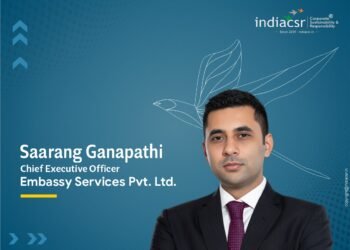New reports show a more affordable way of achieving multiple benefits
DUBAI: Companies need to move on from pious statements about corporate social responsibility to making it happen according to Prof. Colin Coulson-Thomas. Speaking in Dubai at a global convention and international conference on CSR he put the case for actionable CSR: “We need to provide practical support. Helping people to take more responsible consumption and lifestyle decisions can change behaviours, increase sustainability and benefit both people and organisations.”
Coulson-Thomas’ Perspective on Policy Gaps:
Coulson-Thomas wrote the theme paper for the event which brought together business and political leaders. He believes “Policy makers have good intentions, but there are gaps between rhetoric and reality and aspiration and achievement. General initiatives and inadequate ‘front line’ support have led to a limited understanding of complex issues and a lack of engagement.”
Advocating for a Holistic Approach:
The professor believes we need to adopt an approach that can implement policies, reconcile different requirements and impact directly on behaviours. His investigations have shown that performance support can increase understanding and help people to behave responsibly. He explains: “Helping people to help themselves can simultaneously achieve multiple objectives and deliver multiple benefits”.
Coulson-Thomas’ Findings on Performance Support:
The results of Coulson-Thomas’ enquiry are set out in ‘Talent Management 2’ and ‘Transforming Public Services’ the first two of a new series of reports on creating high performance organisations. He finds “performance support can boost productivity, increase engagement, reduce costs, avoid risks and ensure compliance. It can also support mobile activities, relocation and outsourcing, and provide quick paybacks and large returns on investment.”
Performance Support Across Sectors:
Using examples from both the private and public sectors Coulson-Thomas has found that performance support can benefit people as well as organisations: “It can speed up responses, increase understanding and make it easier for people to do difficult jobs. Applications can also free people from dependency upon particular locations, reduce stress, and enable bespoke responses.”
Implications for Boards and Policy Makers:
The two reports suggest building high performance organisations can have important implications for corporate and public sector boards. According to Coulson-Thomas “policy makers can achieve multiple objectives from corporate initiatives such as CSR. Costly initiatives can be replaced by affordable ways of benefiting people, organisations and the planet.”
Overcoming Skepticism on CSR Initiatives:
Initially sceptical of many CSR initiatives Coulson-Thomas is encouraged by his findings: “People can be engaged and helped to take more responsible consumption and lifestyle decisions. Collaboration with other organisations can also increase impact and benefit all parties. Above all one can abolish certain ‘traditional’ trade-offs and succeed with one’s current team of people and an existing corporate culture”.
Effective Approaches for Uncertain Futures:
Organisations try different ways of building high performance organisations. According to Coulson-Thomas “Some approaches are general, expensive, time consuming and disruptive, such as restructuring and re-organising or problematic such as endeavouring to change a corporate culture. Organisations facing an uncertain future need quicker, focused and more cost effective approaches that give large returns on investment such as changing the performance support provided to key work groups.”
The global convention and 7 th international conference on corporate social responsibility was organised by the Institute of Directors of India in association with the Dubai Quality Group. It was held at the Hotel InterContinental, Dubai Festival City between 24 th and 27 th April 2012. During the convention there was also a study visit to Masdar City in Abu Dhabi.
About the Author
Prof. Colin Coulson-Thomas, chairman of Adaptation, Bryok Systems and other companies and author of ‘Talent Management 2’ and ‘Transforming Public Services’ is an experienced non-executive director and chairman of award winning companies, and a member of the business school team at the University of Greenwich. He has served on many private, public, professional and voluntary sector boards, including as chairman and president, and is the author of over 40 books and reports.
The global convention and 7 th international conference on corporate social responsibility was organised by the Institute of Directors of India in association with the Dubai Quality Group. It was held at the Hotel InterContinental, Dubai Festival City between 24 th and 27 th April 2012. During the convention there was also a study visit to Masdar City in Abu Dhabi.






















